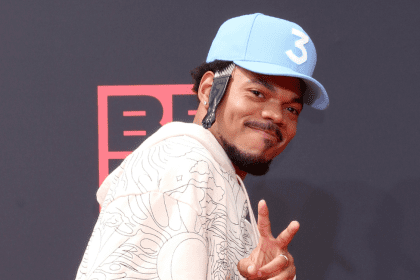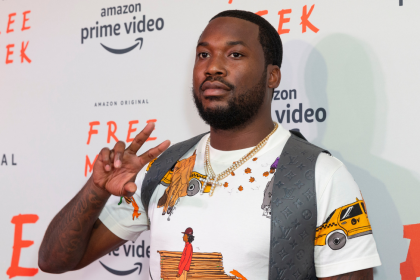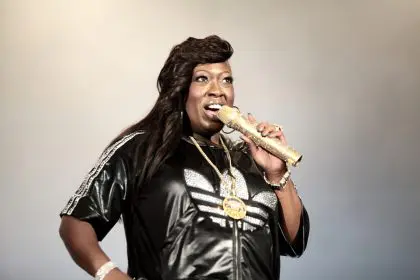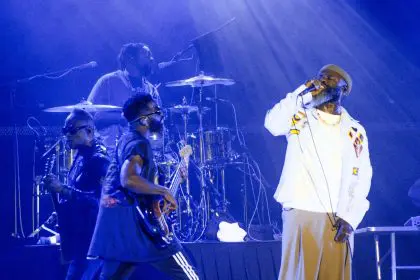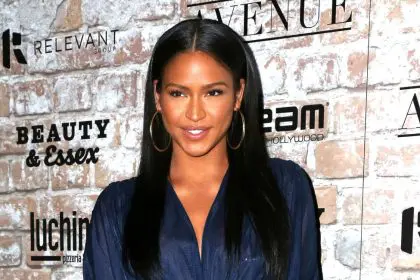“I beat the p—y up like Emmett Till …”
That bit of “witty” lyricism is from rapper Lil Wayne‘s now-aborted verse on the remix to fellow hip-hop star Future‘s song “Karate Chop.” Emmett Till was an African American teen from Chicago who was beaten, tortured and shot to death in Mississippi in 1955 for flirting with a white woman. His death was one of the most horrific and infamous acts of terrorism against a young, black kid in American history and a catalyst for the nascent Civil Rights Movement that would subsequently catch fire in the 1960s.
Wayne’s decision to make a degrading analogy about one of this country’s most shameful and vicious historical episodes is regrettable and outrageous. But more than that, the reaction from the rapper and his label speaks volumes about the level of arrogance required to think it “creative” to make such a comparison in the first place.
Till’s family reacted with understandable disgust in the aftermath of the song’s release.
“To compare his murder and how bullied, beatened and tortured he was to the anatomy of a woman was really very disrespectful,” said Airicka Gordon-Taylor, Till’s cousin, in an interview with Dr. Boyce Watkins. “We found it dishonorable to his name and what his death has meant to us as a people and as a culture. It was offensive not only to us, but to our ancestors and to women and to themselves as young, black men.”
Gordon-Taylor is the founder of the Mamie Till Mobley Memorial Foundation. “I just couldn’t understand how you could compare the gateway of life to the brutality and punishment of death. And I feel as though they have no pride and no dignity as black men,” she added.
Civil rights icon Rosa Parks famously sued hip-hop group OutKast for naming their 1998 single after her. But her family didn’t want her lawyers to pursue the suit, believing that, in her advanced age, she was being manipulated by greedy attorneys. That’s not at all the case here — Till’s family was stung by Wayne’s line.
Posting on the Foundation’s Facebook page, Gordon-Taylor indicated that Epic Records CEO L.A. Reid contacted the family and pulled the song.
“Mr. Reid stated the song was leaked out and he had not heard the lyrics,” read the post. “He is a man of integrity that values our family’s legacy and wouldn’t allow such heinous usage of Emmett Till’s name or dishonor his memory. We have yet to hear from Lil Wayne’s camp and he is the one that said it! It was all I could do to hold back my tears while engaged in conversation. Thank you Mr. Reid for now I can exhale.”
It is commendable that L.A. Reid and Epic reacted swiftly and appropriately, but Wayne and his representative’s silence on this matter speaks volumes — louder, even, than a record label executive scrambling to absolve himself of a public relations nightmare.
“We regret the unauthorized remix version of Future’s `Karate Chop,’ which was leaked online and contained hurtful lyrics,” Epic Records said in a statement. “Out of respect for the legacy of Emmett Till and his family and the support of the Reverend Jesse L. Jackson Sr., we are going through great efforts to take down the unauthorized version.”
But why has Wayne remained silent?
An artist has the right to express himself however he or she wishes–even if its crass and offensive. But to not even acknowledge the family, the fans and the controversy is arrogant and cowardly. Explain why you chose to make such a ridiculous and ignorant analogy; defend your right to say whatever you want to say in your music. But don’t hide behind an outside record label’s publicity department or a respected music executive, Wayne. Stand like a man, look that family in the eyes and say, “I do what I want. I’m sorry if that offends you.”
If that’s your art, then speak up for it, Mr. Carter.
Wayne has been quick to cry racism in instances where he feels he’s been disrespected. Just last week, he insinuated racial biases when he lashed out at a cameraman at a charity football game. “I don’t like to be touched by people I don’t tell to touch me,” he ranted. “So, I’ma get out of the building because if I touch somebody, I go to jail because they not the color of me.”
Last summer, he chided the Oklahoma City Thunder organization for being racist because a white season ticket-holder allegedly refused to let him have his seat at a playoff game.“It’s the players stepping up [to provide tickets] but, of course, the players aren’t white. I don’t want to be sitting there on behalf of you and I’m sitting next to a [person] that’s like ‘I don’t want this [guy] sitting next to me.’ [Forget] you … I’m in Forbes,” said Wayne.
When he feels infringed upon, he wants to talk about racism. But racism doesn’t mean enough to the YMCMB rapper that he won’t disrespect a slain black teenager who died for simply flirting with a woman of the wrong color.
February 26th marks the one-year anniversary of the murder of another teenage black male who died for simply being the wrong color in the wrong place. Trayvon Martin’s case remains unresolved. With that harsh reminder staring all of America in the face, how can we even begin to pretend that “beat the p—y like Emmett Till” is okay coming from the lips of anyone, let alone a black artist with Lil Wayne’s popularity?
This entitled rapper needs to speak to that family. He needs to do it himself. In 2009, Kanye West appeared on Jay Leno’s talk show to apologize for disrespecting Taylor Swift at that year’s VMAs. But L.A. Reid apologizes to Emmett Till’s family on Wayne’s ‘behalf’ while Wayne ignores the issue? No, sir. Not good enough.
Respect the reality of racism, Lil Wayne. Even when it doesn’t affect you getting courtside seats.
–stereo williams


